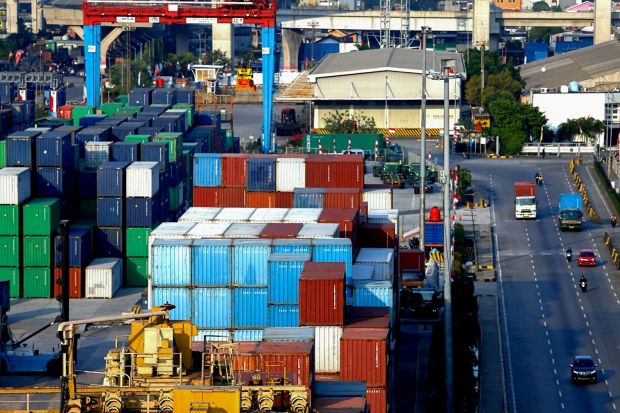Indonesia imports likely to stay weak: economists
INDONESIA’S August trade figures remained weak, with imports in particular expected to continue underperforming due to weak domestic demand, said economists after the release of official data on Sep 15.
Though improving marginally from July’s year on year declines, both imports and exports remained weak. Imports were down 24.2 per cent year on year, while exports fell 8.2 per cent year on year.
Compared to July, exports were down 4.6 per cent with lower shipments of precious metal and palm oil, while imports grew 2.7 per cent, with consumer imports picking up 7.3 per cent and raw auxiliary goods rising 5 per cent.
Yet all import categories saw double-digit falls year on year, with the largest drag coming from raw materials.
“The persistent double-digit contractions in imports point to very weak domestic demand,” said Oxford Economics economist Sung Eun Jung, noting that the greater underperformance of imports suggests “a much slower recovery in domestic demand compared to external demand”.
“Coupled with retightening of mobility restrictions in Jakarta, we expect domestic demand to significantly drag on growth for the remainder of the year,” she added.
Oxford Economics’ forecast is for Indonesia’s gross domestic product to contract 2.7 per cent this year, with risks tilted to the downside.
UOB economists Enrico Tanuwidjaja and Haris Handy similarly expect reimposed Covid-19 measures in Jakarta to “slightly depress imports”, while expecting that exports may continue to rise on the back of global economic recovery.
Citi economist Helmi Arman expects that “the normalization of domestic activity will not follow a straight line but a rather choppy one”, with such uncertainty being likely to delay corporate capital expenditures and durable goods spending. This, in turn, will continue to restrain imports of capital goods and machinery.
As for the implications of the continued wide trade surplus of US$2.3 billion, he suggested that “in the next few months or quarters, any absence of fixed income portfolio inflows will not be very destabilising for the IDR (Indonesian rupiah)”.
“(The central bank) will likely still have to intervene in the event of portfolio outflows but a large drain on reserves is unforeseen at this point,” he added.


 Thailand
Thailand




